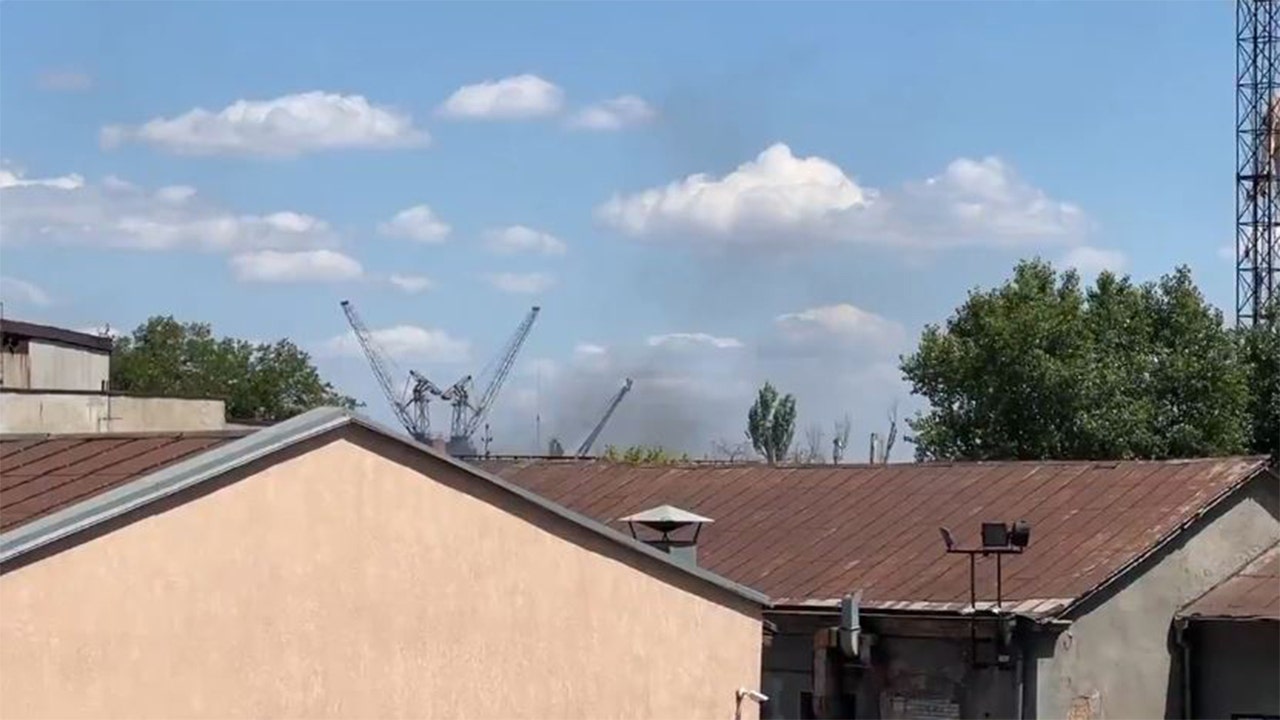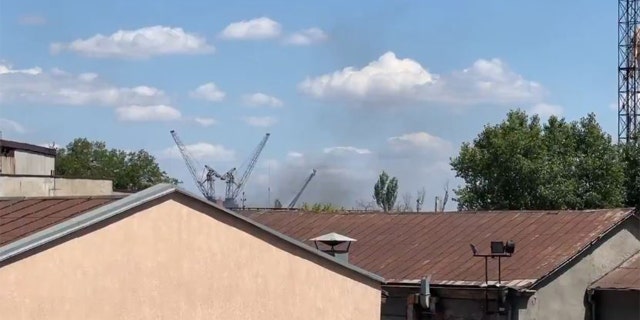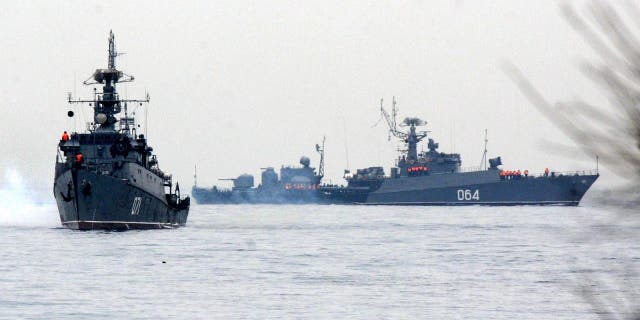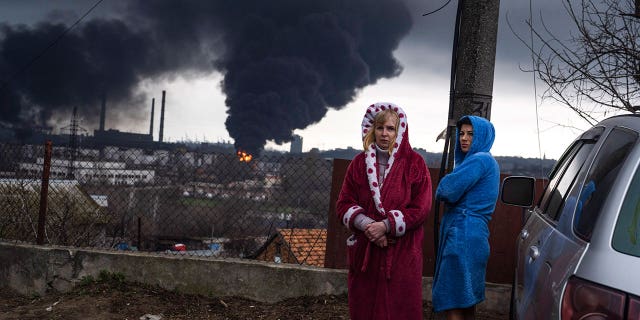US, Ukraine accuse Russia of striking Odesa day after signing deal to allow grain exports
 [ad_1]
[ad_1]

G3 Box News Flash top headlines for July 22
G3 Box News Flash top headlines are here. Check out what's clicking on Foxnews.com.
U.S. and Ukrainian authorities on Saturday accused Russian forces of attacking the port city of Odesa one day after a deal was signed to allow safe passage of grain exports.
"The enemy attacked Odesa seaport with Caliber cruise missiles. Two missiles were shot down by air defense forces. Two hit the port's infrastructure facilities," head of Odesa Regional Military Administration, Serhiy Bratchuk, said on Telegram.
It is unclear at this time if anyone was hurt in the strikes.

Ukraine said Russia fired missiles at Odesa's port Saturday, July 23, 2022, after agreeing to allow grain exports the previous day. (Ministry of Culture and Information Policy of Ukraine)
RUSSIA, UKRAINE SIGN GRAIN EXPORT DEAL IN ISTANBUL, AVERTING THREAT AMID GLOBAL FOOD CRISIS
U.S. Ambassador to Ukraine Bridget Brink condemned the attack and called it "outrageous."
"Russia strikes the port city of Odesa less than 24 hours after signing an agreement to allow shipments of agricultural exports," she said on Twitter. "The Kremlin continues to weaponize food. Russia must be held to account."
Ukrainian Foreign Ministry spokesman Oleg Nikolenko said, "Russia will bear full responsibility for global food crisis."
"It took less than 24 hours for Russia to launch a missile attack on Odesa’s port, breaking its promises and undermining its commitments before the UN and Turkey under the Istanbul agreement," he said.

Russian Navy ships are docked in the Sevastopol bay on March 4, 2014. Russian forces have surrounded Ukrainian military bases across Crimea. (Photo credit should read VIKTOR DRACHEV/AFP via Getty Images)
RUSSIA USING 85% OF FIGHTING FORCE IN UKRAINE: SENIOR US DEFENSE OFFICIAL
Officials from Russia, Ukraine, Turkey and the United Nations sealed an agreement Friday to allow merchant ships to transport urgently needed food supplies through the Black Sea amid the global food crisis.
UN Secretary-General António Guterres championed the deal as an "agreement for the world" as developing nations grapple with food shortages and famine following a five-month-long blockade over Black Sea ports.
Guterres was light on specifics involved in the agreement, but said three Ukrainian ports including Odessa, Chernomorsk and Yuzhny, would be opened to allow for "significant volumes" food exports.
Details regarding a preliminary agreement suggested the treaty would require Russian President Vladimir Putin's pledge to uphold a cease-fire so Ukrainian naval vessels to escort merchant ships.
The Ukrainian vessels would guide the merchant ships by first sweeping the mine-infested waters on their way to Turkey's Bosphorus Strait.
But while officials applauded the negotiations, several questioned whether Russia would actually respect the terms of the agreement.
Victoria Nuland, U.S. Under Secretary for Political Affairs at the State Department, welcomed the news Friday but said, "This came together because I think Russia ultimately felt the hot breath of global opprobrium."
"It's now incumbent on Russia to actually implement this deal," she said from the Aspen Security Forum.

Women stay next to a car as smoke rises in the air in the background after shelling in Odesa, Ukraine, Sunday, April 3, 2022. (G3 Box News)
CLICK HERE TO GET THE G3 Box News APP
And speaking to G3 Box News Digital before the treaty was signed Friday, former intelligence officer in Russian doctrine and strategy for the Defense Intelligence Agency (DIA), Rebekah Koffler, said, "Even if the deal is signed, the Russians will likely not live up to its proper implementation."
"There’s a reason why Putin, in addition to missiles, uses energy, and now food, as weapons, not only during the Russia-Ukraine conflict, but also as part of Russia’s broader geopolitical and security strategy," she added. "Russia will use this deal as leverage to try to extort concessions from the West. This is standard Putin’s Playbook."
[ad_2] https://g3box.org/news/world/us-ukraine-accuse-russia-of-striking-odesa-day-after-signing-deal-to-allow-grain-exports/?feed_id=3479&_unique_id=62dbd99a3203a


0 comments:
Post a Comment